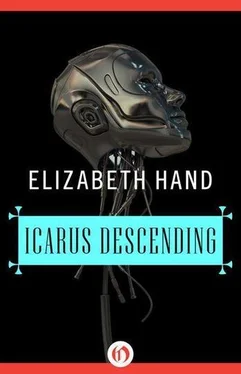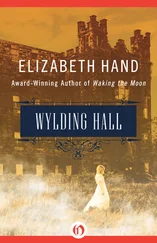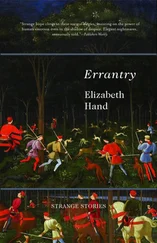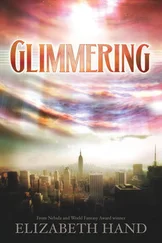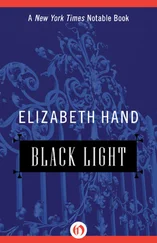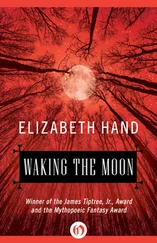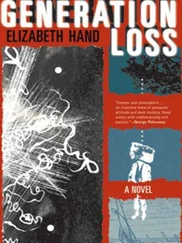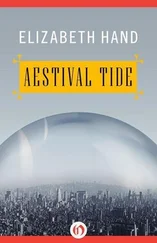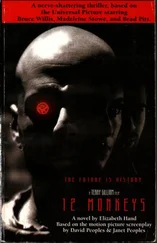Elizabeth Hand
Icarus Descending
Winterlong, Book 3
For my mother and my father,
Alice Ann and Edward Hand, with all my love and thanks
But when, from flesh born mortal,
Man’s blood on earth lies fallen,
A dark, unfading stain,
Who then by incantations
Can bid blood live again?
Zeus in his pure wisdom ended
That sage’s skill who summoned
Dead flesh to rise from darkness
And live a second time;
Lest murder cheaply mended
Invite men’s hands to crime…
—Aeschylus,
Agamemnon
“Ah, Dr. Austin…What do you think of them? I see there’s War in Hell.”
—J. G. Ballard,
The Atrocity Exhibition
1
Dr. Luther Burdock’s Daughter
“O MY SISTER KALAMAT. It is here again—”
The voice was that of my sister Cumingia, she who has engraved upon her breast the image of a shell from a sea we have never glimpsed save in our dreams. Her voice was strained with worry, as it had been for many weeks now, ever since our Masters had been given one by one to the Ether.
I smiled wearily and pointed to a cushion in the nav chamber where I was working. I was sifting through the records left behind by our Masters, hoping to find something that might explain the myriad strange wings that had entered our world these last months. “Sister Cumingia. Please, sit.”
Cumingia gazed at the cushion and shook her head: it had been designed for one of our Masters, and so was much too small for her. “I will stand, Kalamat.”
I glanced back at the monitor that I had been scrolling through, but after a moment felt Cumingia’s gaze boring into me, anxious as a child’s. I sighed and switched off the monitor, and turned my full attention to her.
“Yes, my sister.”
Cumingia leaned against the curved wall of the station’s nav chamber. The lines of her lovely face were drawn tight, so that she resembled one of the Masters more than she did a sister of mine and one of the children of Luther Burdock. She hesitated, her large strong hands crossed upon her chest, then finally began to speak.
“It is the little oracle, sister Kalamat. The one I told you about; the one that speaks of the thing called Icarus.”
I pursed my lips and nodded. Those of us who still lived on the station called Quirinus had grown too familiar with oracles since our Masters began to die: random or not-so-random holofiled images generated in the wake of the deaths of the ruling Ascendancy of the HORUS colonies. Most of the oracles were merely warnings sent from besieged Masters on other space stations. Some were from cloned geneslaves like my sisters and me, who claimed they were members of a rebel Alliance; yet others appeared to be purely random images produced by the collapse of databases at Totma 3 and Helena Aulis and Hotei.
But the one that Cumingia had seen was different. She had first glimpsed it when she entered that part of the station library that had always been forbidden to energumens. Since then it had appeared three times in as many solar weeks, to Cumingia but also to others tending the ’files and records on Quirinus. I had never seen it.
“Its message has changed?” I asked.
Cumingia shook her head. “No. It is as always—but this time I had the chance to record it, sister Kalamat! Would you like to see it?”
I nodded eagerly, moving away from my sister to allow room between us for the holofile. Cumingia placed the recorder on the tiled floor and stepped back. An instant later an image appeared.
It appeared to be an eye, or rather, a simulacrum of an eye formed of light, with a pulsing darkness at its center where a pupil would be—a human’s eye, and not an energumen’s. Wispy threads that might have been mist or perhaps gray strands of tissue flowed behind it, and it was surrounded by the engulfing darkness that the HORUS colonies—the Human Orbital Research Units in Space—have yet to penetrate.
“What is it?” Cumingia’s whisper made the hairs on my neck prickle. I shook my head, frowning.
“I do not know. It can’t be a real eye—that must be some trickery of whoever originally ’filed the image. Is there a date, or name?”
Cumingia’s hand pressed against mine. “Wait,” she said. “You will see—there, now—”
Beneath the dully flickering orb, numerals appeared.
SAN ENCINO JET PROPULSION LABORATORY APOLLO OBJECTS TRACKING PROJECT 06262172, UNITS 729–843
SUBJECT: ICARUS
A ’filing date some four hundred years earlier, from the time when our father Luther Burdock first lived; a location on Earth that no longer existed. I leaned forward to read more closely, but the golden letters had already disappeared. Before I could ask Cumingia to scroll them for me again, a voice began to speak.
“…astrometric starplate at Mount Palomar shows parhelion passage at approximately 0818 June 29, with potentially catastrophic alignment of descending node at—”
A man’s voice, speaking slowly and with great care, as though reading from a prompter.
“…it is of the utmost importance that the JPL Project permits immediate release of warning transcripts and all other information relating to this disastr—…”
A burst of static cut off the recorded transmission. An instant of silence, and the loop repeated itself twice more. Then, abruptly, the man’s voice was gone. Instead there was a shrill, rather childish, voice, repeating the same word over and over and over again:
“Icarus. Icarus. Icarus. Icarus.”
After about a minute it faded into eerie silence.
“Every time,” Cumingia said softly, after we had stared into the empty air for several moments. “It is the same thing: the same image, the same two voices. I have tried to trace its origin, but the coordinates change.” She tilted her head and stared at me, her huge black eyes beseeching. “What is it, O my sister Kalamat?”
I frowned and shook my head. I had her play the recording again, and again; as though some new wonder might be revealed, some new meaning teased from the nearly toneless voices with their garbled message. At last I bade her retrieve the recording and put it away.
“It is nothing,” I announced. I could see relief and also disappointment clouding my sister’s eyes, but she said not a word. “Another random transmission from one of the fallen colonies, like that call for help that was two years old.”
Cumingia nodded, then added hesitantly, “None of our brothers or sisters in the other colonies have seen it.”
I shrugged and returned to my desk, with its array of tiny, human-sized monitors and nav aids. “Obviously the transmission is carried only within our range. You have shown this to our other sisters?”
A pause before Cumingia answered. “Most of them.”
“And what do they think?”
Cumingia bit her lip before replying. ‘They think it is another omen.”
“Of what?”
“We do not know. But this name, Icarus—it is a man’s name, a human name. We fear it presages some means of retaliation against us, some punishment for the rebel uprisings.”
I laughed then, turning to look at my sister: so much taller than any human, and far stronger and lovelier, with the intricate crosshatch of scars where her breasts had been and the delicate wings of the shell that is her namesake etched upon her cheeks. “There are no humans left to fight us, sister! Not up here, at least. And below, on the Element—” I made a flicking motion with my fingers. “Below, our father awaits us. And he will not allow us to come to harm.”
At mention of our father Cumingia blinked. The silvery pupils dilated in her glowing black eyes. I felt a flash of anger within me, like a tiny flame. Cumingia did not believe that our father still lived. Of all my sisters I was the only one who still carried the image of Luther Burdock in my heart, heard his voice as I lay in my bed and waited for sleep to find me in the station’s false night: a voice that the centuries had not stilled. Because I believed that, like his children, Luther Burdock had not been allowed to die. I believed that he waited for us, waited for me, somewhere on the Element below, and that someday we would rejoin him, as he had promised.
Читать дальше
